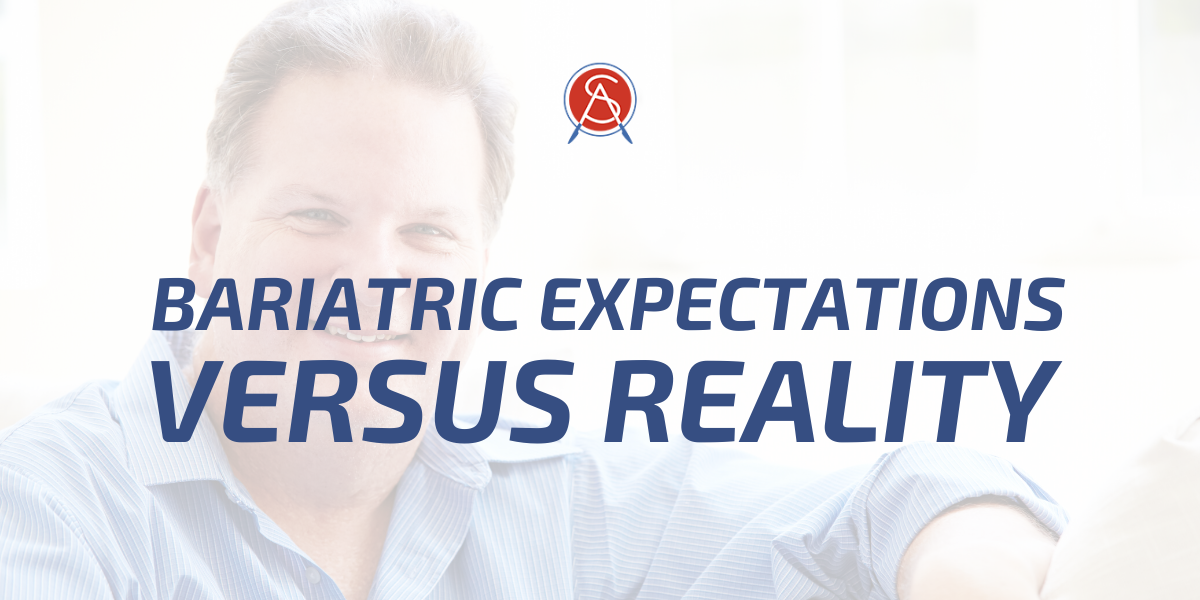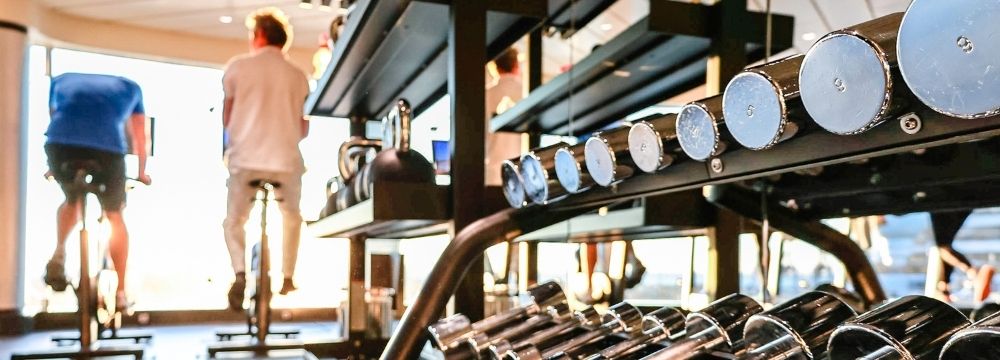You will often hear people describe weight loss surgery as the “easy way out.” Many patients have struggled with their weight their entire lives, which can impact relationships, self worth and self esteem. Further, as humans we love to compare ourselves to others. The truth is, every person’s weight loss journey is unique. Undergoing weight loss surgery and making the important changes that bring success is anything but easy. Some patients start their journey with expectations that may be skewed from reality, making it all the more difficult to succeed. It is important to set yourself up for success by planning for the reality of what it will take to find success and what that success will look like for you. So what should you expect, and when are you being unrealistic? Read on below about come common false expectations patients have.

“After bariatric surgery, I will be fit!”
Following bariatric surgery, fitness level is still dependent on your commitment to exercise and muscle building. Fitness is less determined by your BMI, clothing size, or six pack abs and more focused around your cardiovascular health and markers like strength and endurance. We encourage all patients, even those not having weight loss surgery, to incorporate regular exercise into their routines. The benefits include better performing internal systems and metabolic function as well as better bone and heart health.
While for some patients it may be achievable, a flat stomach may not be a realistic expectation for all. Many patients will successfully lose their excess weight while stubborn pockets of unwanted fat and redundant skin remain. Plastic surgery procedures are commonly sought out to improve the outer contour of the abdomen or even the thighs, arms, or back when large amounts of weight have been lost. Whether this is the right choice for you or not is a personal choice. Typically these procedures are self-pay with the exception of a panniculectomy, which addresses chronic issues due to an overhand of skin obstructing the pubic area.
“Losing weight will solve my problems!”
For many patients, preexisting issues include depression, anxiety and disordered eating. Altering your stomach organ doesn’t change any of these things. It is important for you to invest in taking care of yourself, including your mental health, in conjunction with your bariatric surgery. While your weight can have a big impact on your life, losing weight is not a cure all solution. It will likely not improve a failing marriage or solve your issues at work. While weight may contribute to some stressors in your life and your overall self esteem, having weight loss surgery and losing weight will not magically address these underlying issues.
Your weight, and the way you feel about your weight, has framed much of how you live your life for a long time. Overcoming this process and learning to nurture yourself can be difficult. Some patients find working with a therapist to be beneficial in changing their thinking for the better. You may also find that it is difficult to adjust and understand if others being to treat you differently. You may feel more noticed than before. This can be challenging in seeing those around you in a new way or feeling hurt to realize they didn’t see you the same way before.
“I won’t be able to eat bad foods after surgery!”
While some people find certain foods cause dumping syndrome, typically gastric bypass patients, the procedure does not choose your foods for you. You are still in charge of what you eat day in and day out. No matter what the size of your new stomach pouch is, high calorie foods that are more fluid or are easy to digest can still easily make it down. Understanding what food choices and eating habits are best for you can be difficult. We recommend working with your bariatric team and a registered dietitian to help support you in adapting to a new lifestyle. Beyond what you eat changing, how you will eat will also change. Some patients find it can be hard to adjust to a new routine and new habits, but it is important to make these changes.
“I will lose as much weight as so-and-so on Instagram!”
We’ve said it before, but it is always worth saying again: your journey is unique. Comparing your weight loss journey to that of someone else can leave you with unrealistic expectations. Focus your goals to your individual situation and what is healthy and best for you. Bodies come in many shapes, sizes, and capabilities. Factors like genetics, allergies and intolerance’s, gut bacteria, or mental health may be playing a role for someone else and not for you.
There is always the chance a filter is helping them out… or a touch of Photoshop too. Further, you never know what moments someone else isn’t sharing online. They may look great to you in photos, but that doesn’t mean they aren’t struggling with dangerous or unhealthy habits. Set your focus on being a better version of yourself and building yourself and others around you up.
“What is realistic?”
Each bariatric procedure has an expected range of a percentage of excess weight we would expect to see come off in the weight loss phase following surgery. You can find these details on each procedure page. We look at things in terms of percent excess weight loss as everyone’s starting point varies, as will the end point and the journey in between. If you are worried you aren’t meeting the milestones you thought, reach out to our team. We are always happy to discuss your health and how to help you be your best. One of the most helpful thing bariatric patients can do is to keep their scheduled follow up visits with their bariatric surgeon, including those after one year, and attend support groups to keep you connected and on the right track for success.










